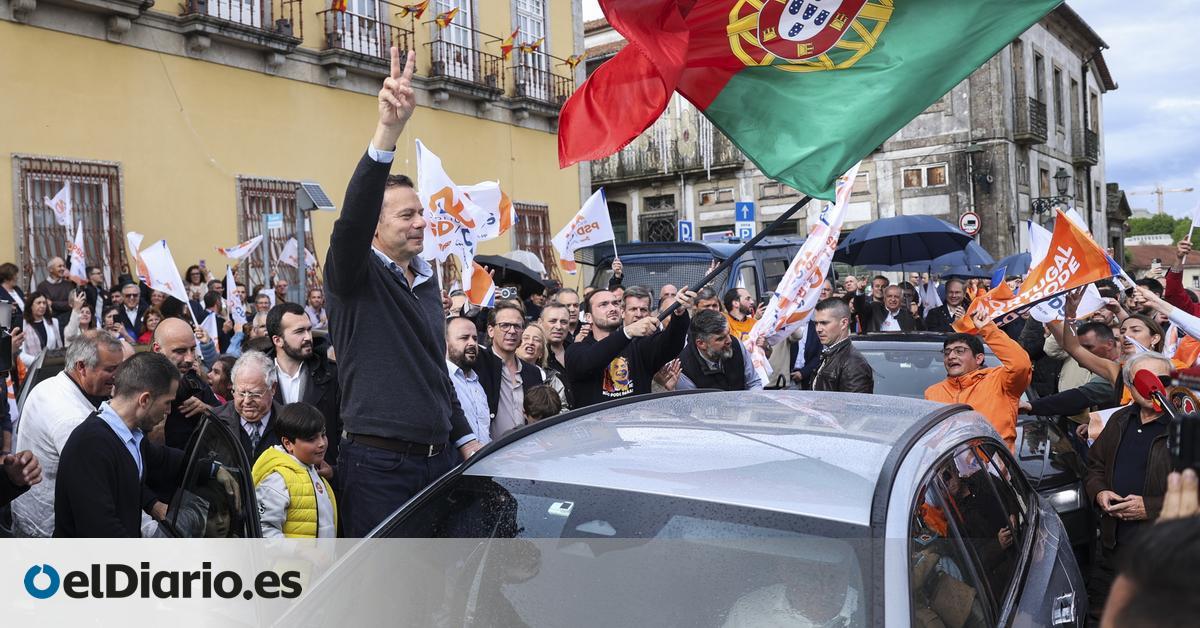
Accustomed in its democratic history to government stability, Portugal has been carrying, however, a succession of governments that barely manage to start their mandates. Since 2019 and counting this Sunday, there will have been four electoral appointments through which the neighboring country has passed. On this occasion I also did not intercourse, to pay attention to the polls, that the resulting executive can develop their program with peace of mind.
The short legislature that started in 2024 with the victory by the minimum of democratic alliance – coalition between the main conservative formation, the Social Democratic Party (PSD) and the almost residual Democratic and Social Center (CDs) – in front of the Socialist Party (PS) collapsed in March after a motion of confidence raised by Prime Minister, Luís Montenegro.
The president had been reluctant to clarify exactly what a company of his property was dedicated, on behalf of relatives when he held the position, which charged a regular amount of a company with interests in the betting sector. The PS wanted an investigation commission that scrutinized the ins and outs of the operation and did not support the motion, which focused the country to elections after denying the support also the extreme right of Chega.
The procedure came to influence political instability that dates back to 2021, when António Costa dissolved a minority government supported by the Parliament by Bloco of Esquerda and Communist Party between disagreements for the rise of wages – even today the minimum does not exceed 870 euros per month -, the public health or the percentage of tolerable deficit in the accounts of the State.
The subsequent elections granted the absolute majority to the PS, but neither in those circumstances the government was strengthened: Costa resigned the following year after the prosecution broke into its residence, which gave rise to new elections. Year and a half later, no indication of crime is known against the leader, who found accommodation at the head of the European Council.
The latest surveys foresee a slightly more comfortable victory for the PSD, but without an absolute majority, after a campaign that has had a leisurely running. It has only altered the strategy of the permanent outburst of the leader of Chega, André Ventura, an absolute protagonist in the formation, to the point that an indisposition of health at the end of the second week led the party to cancel all the acts.
The role of the extreme right
His stark rhetoric against gypsies “A group of them received it among ironic applause at the gates of the hospital where it was admitted after what Ventura himself has said that it was an episode of reflux of esophagus,” against immigrants and against the “corruption” of traditional parties were the tonic of rallies and ruinedthe classic campaign walks of the candidates to exchange impressions with citizens. Chega is the third party in the Assembly of the Republic, and the surveys predict a similar result on Sunday.
Although Montenegro insists that he will not agree with Ventura to access the government, the extremist discourse has already permeated its policies, in which the cut of the access of irregular migrants to public health is announced – which in turn continues its loss of quality, with users and doctors crying against what they understand as an attempt to privatization -, the end of the regularizations of residence of foreigners of hardness against crime, which does not sympathize with the reality of one of the safest countries in the world, according to repeated statistical studies. The pressing housing problem has been ignored, meanwhile.
For his part, the PS candidate, Pedro Nuno Santos, has discussed between cultivating his progressive profile – he has always been one of the great supporters of alliances with the leftist parties during the governments of António Costa, of which he was minister – or opting for one more center profile, as he tried to do in the electoral debate with Montenegro. Then he put Mario Draghi’s ideas as a PS model for Europe. The Italian is still remembered as leader of the European Central Bank, one of the leg of the hate troika, which imposed hard conditions for the country’s financial rescue as of 2011.

To the left of the PS, the Communist Party (integrated into the CDU coalition) and the Scherda Bloco fight for not losing representation at the hands of Livre, whose leader, Ruí Tavares, was in the coordinates of the Bloco until 2011 and could capitalize a lower age vote. On the right, he aspires to have weight to form a liberal initiative government, defender without taping of the preponderant role of the private sector in the economy and with the willingness to enter an eventual government with the PSD. Their leader, Rui Rocha, declared in campaign that the conservatives proude them to participate in an electoral coalition. Montenegro went through the branches when asked about it. More to the right, the DNA formation, sustained by evangelical Christians, threatens to introduce an even more extremist deputy in Parliament.
Source: www.eldiario.es

